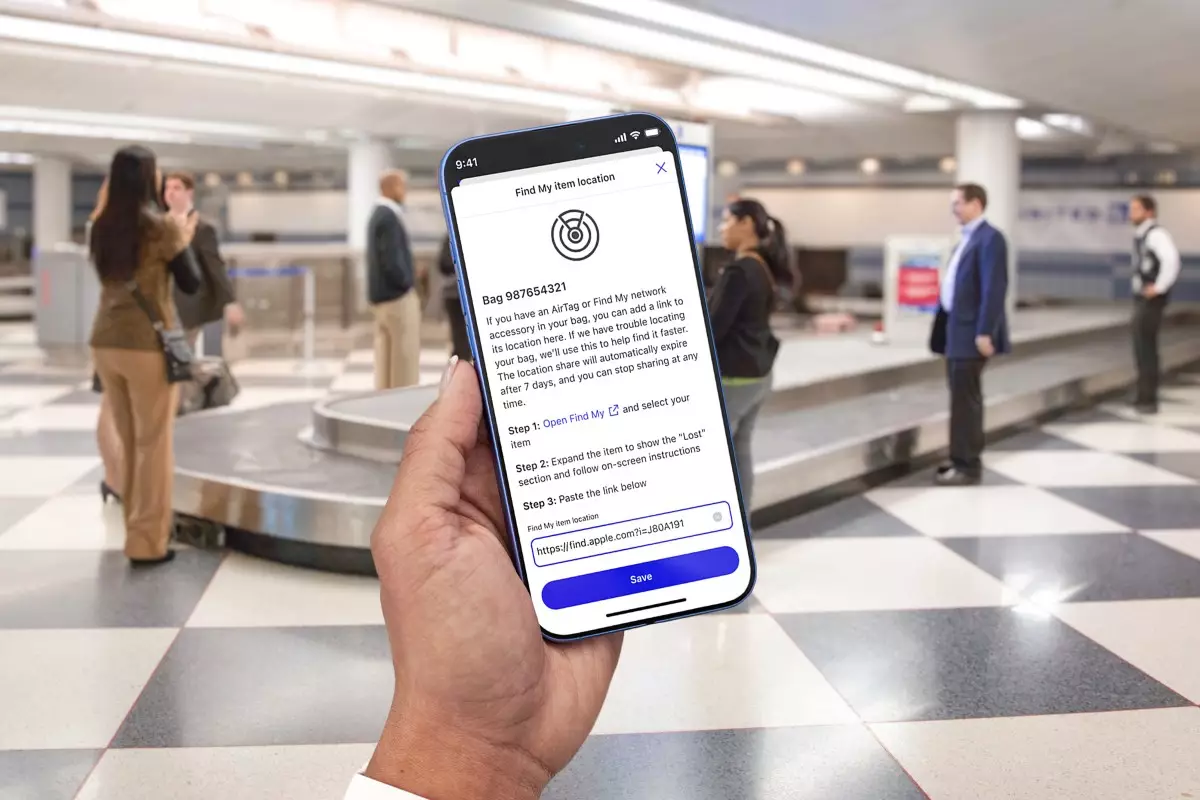As the holiday travel season approaches, there’s an urgent need to tackle one of the most aggravating experiences for travelers: lost or delayed luggage. Apple has stepped into this arena with a promising solution by integrating its AirTag tracking device with customer service systems of major airlines, including United Airlines and Air Canada. This timely enhancement aims to streamline the process of locating lost belongings, bringing an innovative technology that has rapidly gained popularity among frequent travelers to the forefront.
At the core of this advancement is Apple’s “Find My Share Item Location” feature, which empowers travelers to share the precise location of their lost or misplaced luggage with airline representatives. This integration functions through Apple’s Find My app—available on devices running iOS 18.2, iPadOS 18.2, and macOS 15.2. Upon experiencing the distress of lost luggage, a user simply generates a shareable link from their Find My app, allowing customer service personnel to access real-time data on the item’s whereabouts.
This development signifies a crucial improvement over traditional methods of reporting lost luggage, where travelers often felt like they were left in the dark. In specific instances, travelers were told incorrect information, as reported in a case where United Airlines mismanaged data derived from an AirTag. Such incidents not only created inconvenience but often led to mistrust between customers and the airline. By facilitating direct communication through location data, airlines can provide more reliable assistance, thereby enhancing customer satisfaction.
An essential consideration in the implementation of this technology is the privacy and security of user information. Apple assures users that the links produced for location sharing are both secure and private, effectively giving users control over their data. Customers can terminate the sharing of their location at any point, and links expire after seven days. This means that while airlines can benefit from real-time updates to assist with tracking, the privacy of each traveler is safeguarded from external access. The inclusion of end-to-end encryption promises that personal information, including location data, remains confidential.
While several airlines already possess customer tracking systems within their applications, the introduction of AirTag integration serves as an invaluable supplement. The precision of location data provided by AirTags can bridge gaps in existing airline tracking systems that may not always align with reality. Despite advancements in technology, misinformation can still occur. As such, the ability to corroborate airline data with the autonomous readings of an AirTag could mitigate customer dissatisfaction during travel disruptions.
Currently, United and Air Canada are the pioneers of this integration, but the future looks promising as Apple anticipates adding partnerships with nearly 20 additional airlines. This expansion could significantly enhance the functionality and reliability of luggage tracking across major international networks. Airlines such as Delta Air Lines, British Airways, and Qantas are among those considered for future collaboration. Should Apple’s integration prove successful, it may set a new standard for how the airline industry addresses the common headache of lost luggage.
The incorporation of Apple AirTags into airline operations marks a significant evolutionary step in the travel industry. As technological solutions increasingly permeate customer service sectors, the integration of real-time tracking through familiar devices enhances the traveler experience, fostering a sense of security and assurance. With privacy measures firmly in place and future airline partnerships on the horizon, Apple is positioning itself as a pivotal player in redefining how we manage travel-related adversities. As travelers begin to rely more heavily on such innovative solutions, it’s clear that the landscape of air travel is on the brink of transformation, paving the way for a more seamless journey.

